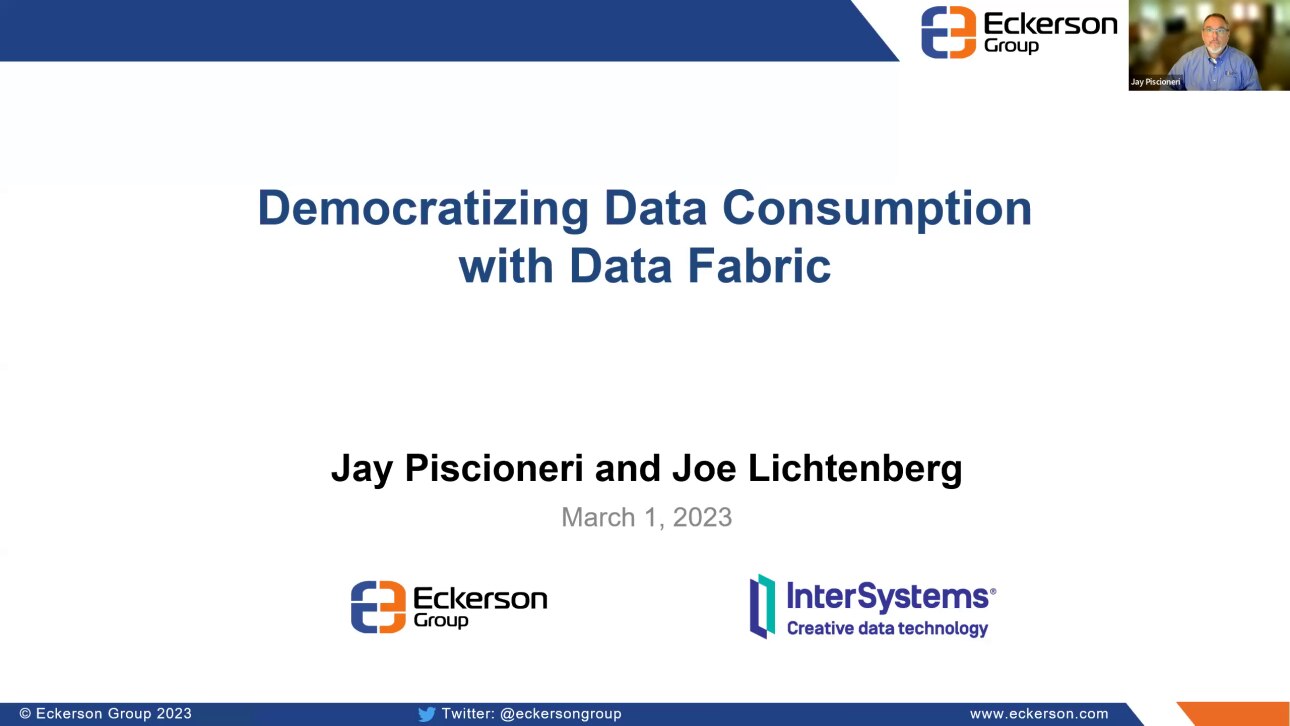The trend toward increasingly diverse and distributed data can prevent organizations from realizing the full benefits of data democratization. Data fabric is an architectural approach that seeks to unlock the promise of modern data by providing a unified view regardless of its format or location. It compliments, rather than replaces, established solutions such as data warehouses and data lakes and provides a dynamic data layer that enables a wide range of business-critical use cases.
In this webinar, Jay Piscioneri, Research Analyst at Eckerson Group, and Joe Lichtenberg of InterSystems discuss how data fabric helps organizations manage modern data environments.
You will learn:
- What data fabric is and why it matters
- How automated data management with embedded analytics helps deliver data democratization
- How data warehouses and data lakes fit in a data fabric
- Implementation approaches and examples
Companion Report


























